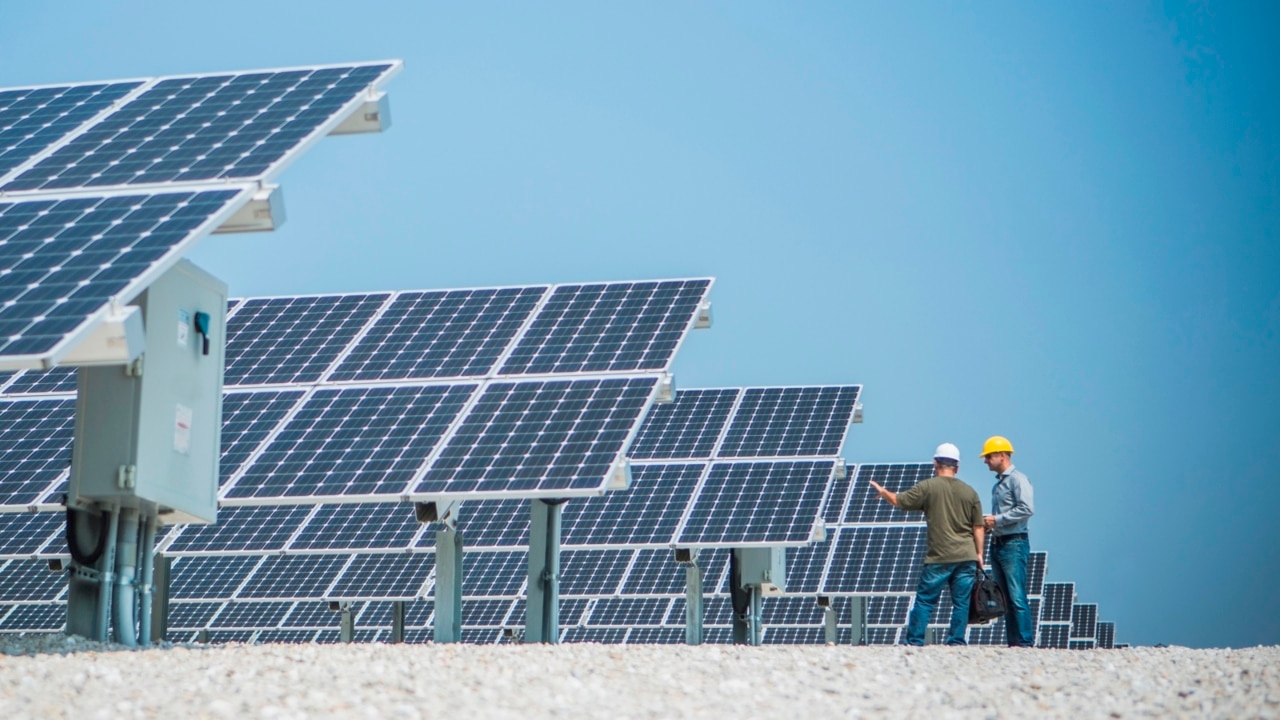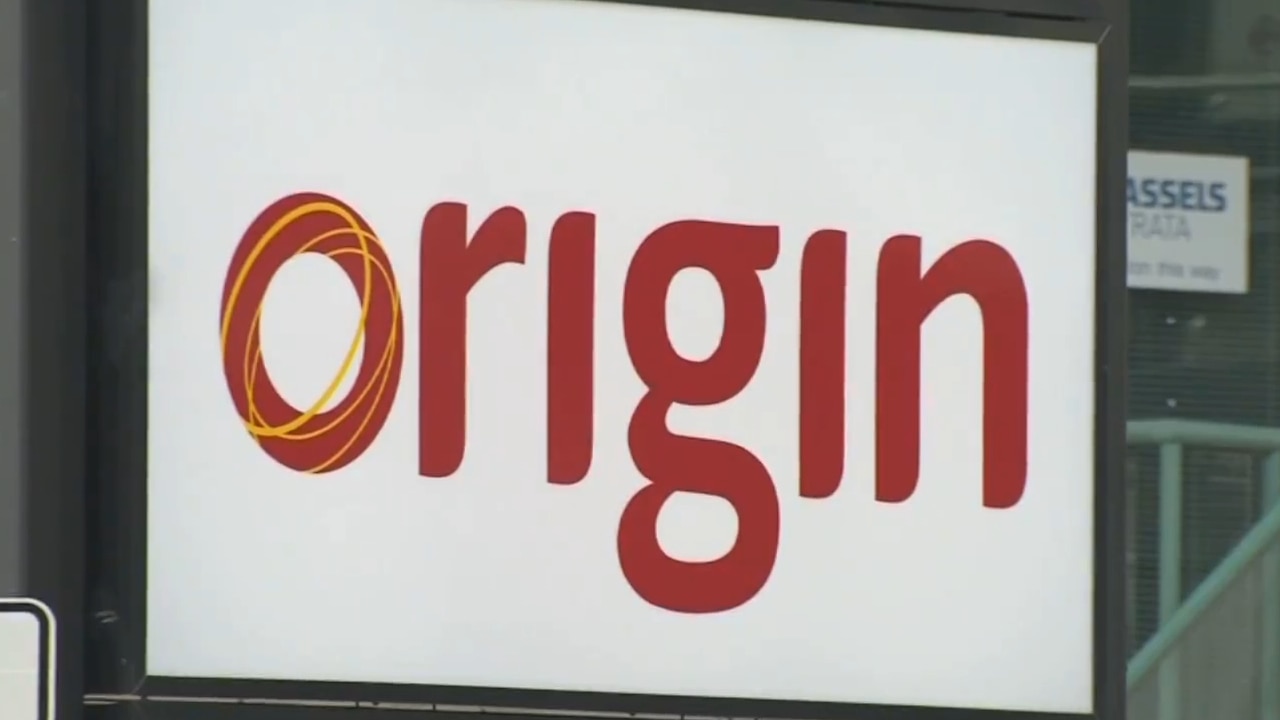
The $18.7bn bid for Australia’s largest energy retailer, Origin Energy, has become a finely balanced, high stakes game which could have very different outcomes for the company’s shareholders.
The $300bn AustralianSuper – Australia’s largest super fund and Origin’s largest shareholder with a stake of almost 14 per cent – says it is happy to sit on its shareholding for the long term.
But if the bidders are not prepared to increase their offer the question is whether other, smaller shareholders would be as pleased if the deal fell over.
Origin’s share price fell 6c on Wednesday to close at $9.07, an indication that some investors are now assessing the possibility of the deal not going ahead.
The company is owned by a host of divergent shareholders – from institutional investors including those represented by State Street which have around 5.27 per cent, Perpetual which has around 3 per cent, fund manager Allan Gray, a host of small industry super funds, arbitrage players who have around 15 per cent of the stock, and retail shareholders with another 30 per cent.
Thanks to the bid, Origin shareholders are now seeing their company’s price at five-year highs. Origin was trading at around $5.17 last September, before the bid from a consortium of Canadian giant Brookfield and its US-based partner EIG, which has sent its share price up to levels of over $9.
Independent expert Grant Samuel has valued the company at between $8.45 and $9.48 a share, using figures from the financial year ended June 30, but indicated that it could see the bottom edge of the range firming to around $8.85 by the end of the year.
While the consortium will need to agree to bump up its offer from around $8.81 if it is to get the 75 per cent shareholder approval needed at extraordinary general meeting set for November 23, the question is whether it will increase it by enough to satisfy the cashed up AustralianSuper.
First mooted last year, the bid was recommended by the Origin board in March but AustralianSuper’s firm stance that the bid values the company at a level which is “substantially below” its estimate of Origin’s long term value, indicates that Brookfield/EIG will need to up their bid to above $10 a share, and maybe more.
AustralianSuper is a unique investor which has a net inflow of more than $20bn a year to deploy.

It is not a passive institutional investor. It has become very much an active player in many markets including energy and infrastructure investment.
Brookfield has said it is prepared to invest as much as $20bn to $30bn to help accelerate Origin’s move to renewable energy, a “green build out” which it says will see an investment of 14GW of renewable energy generation and storage capacity by 2033 – well above Origin’s planned target of 4GW in renewables by 2030.
It plans to do this with funds from the Brookfield Global Transition Fund (BGTF), which was launched in 2021, and has a mandate to invest billions of dollars in renewable energy.
For its part, AustralianSuper does have the capacity to remain a long term shareholder of Origin and could even put its own cash up to help accelerate its energy transition process.
In 2016 it joined with industry super fund investment vehicle IFM Investors to buy a 50.4 per cent interest in NSW electricity company Ausgrid.
It has done well out of the deal which has given it first-hand experience in running an electricity company as well as profits generated from the recent sell down of its stake. It now holds 8.4 per cent of Ausgrid.
One of its senior executives, Jason Peasley, who heads up the super giant’s “mid risk” investment area and has a long history in infrastructure investing, is still on the Ausgrid board.
The fund is a unique organisation with a commitment to investing significant sums in the energy transition process.
But other shareholders are more passive investors, who may not have the financial capacity and the mindset to wait for long term financial returns.
There are many ups and downs ahead in the energy transition process.
Perpetual is supporting AustralianSuper’s call for a higher offer, but the question is what it might be prepared to settle for.
It is arguing that the outlook for Origin is now significantly better than it was last year when the takeover talks started.
Energy prices have risen, there is a clearer focus on the role of gas in Australia’s energy transition process and the advantages of Origin’s own position as a market leader in both customer numbers and gas peaking generation.
It has a very different portfolio of assets from the more coal-dependent AGL.
Expectations are that Origin’s NSW coal-fired power station Eraring might have a longer life than expected.
There is also an increasing recognition of the value of its 20 per cent stake in UK renewable energy focused energy supplier Octopus Energy.
Its Kraken energy tech platform, which is used by Origin, is winning new contracts.
Britain’s second largest energy retailer, Octopus recently bought the UK and German retail energy businesses of Shell, giving it an extra two million customers.
Origin’s stake in the Australian Pacific LNG project in Queensland is also attractive given the continued strong global demand for LNG.
The high stakes game, which will be decided in the next few weeks, will come down to Brookfield’s assessment of whether AustraliaSuper has the power to block the deal and how much it is prepared to pay for its acceptance.
The bid needs acceptance by 75 per cent of shareholders who vote at the EGM.
With analysts generally estimating that only around 80 per cent of shareholders who can vote at an EGM actually do, it means AustralianSuper’s voting power could be seen as a bit higher than 14 per cent.
Having made its views clear with its statement this week, AustralianSuper is now expected to be having conversations with like- minded investors about joining the no camp.
It could even consider upping its stake a little more to increase its leverage in the deal.
Meanwhile, back in North America, the bidders will be going back to their own investors to see how many more billions they are prepared to put on the table between now and November 23.
There may be a fine calculation in the amount needed to get the 75 per cent shareholder support, knowing that some shareholders will be keener than others to take the money and run.
With no other bidders on the horizon, the question for more passive investors is how low the share price will fall if the bidders walk away – a view the Origin board have clearly taken with their support for the deal.
The future of one of the country’s key energy companies and its assets is at stake – with potentially very different outcomes for all stakeholders.


